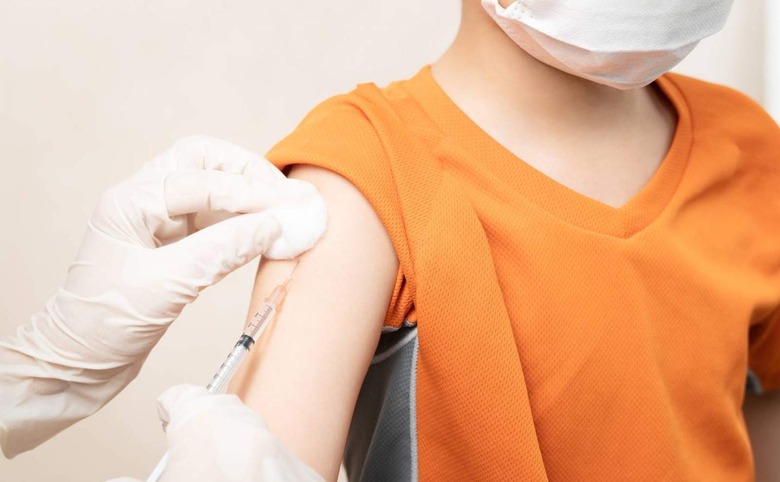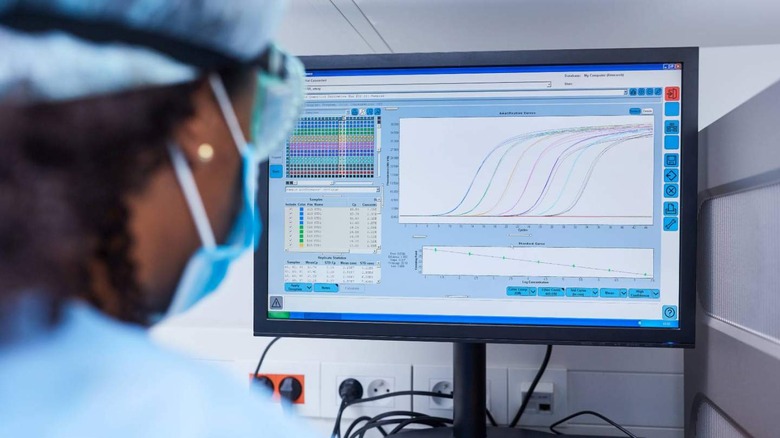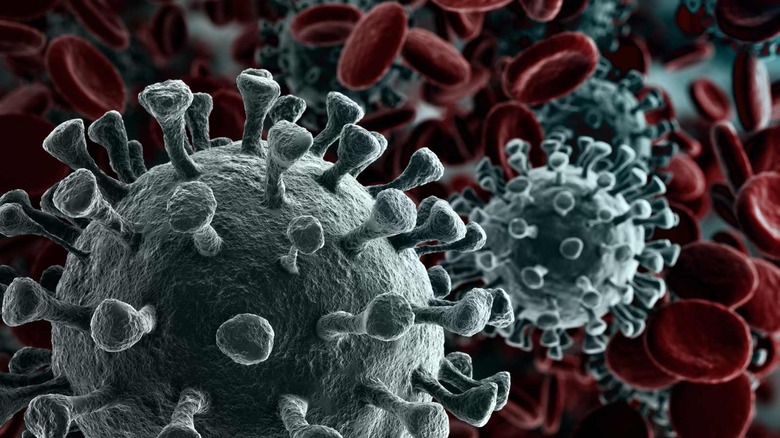Pfizer's Early COVID Vaccine Trial Data Hints At Bad News For Some Parents
Pfizer and BioNTech, the companies behind one of the COVID-19 vaccines authorized for use in the United States, have announced plans to expand their trial involving kids in the youngest age groups. Going forward, the clinical study will add a third dose to the vaccine regimen for babies and young kids ages 6 months to 4 years of age. The reason, the company notes, was less than robust responses in participants given the two-dose series.
Pfizer trial on young kids
Though many people in the US are now able to get the COVID-19 vaccine, including a booster shot, those in the youngest age groups are left vulnerable to the virus. This has been a growing concern for parents as new, more contagious variants arrive, kids resume in-class schooling, and medical professionals sound the alarm over an increase in serious COVID-19 cases among children.
US health agencies anticipate an eventual emergency use authorization involving a COVID-19 vaccination regimen for young kids, but the companies behind these products must first complete their clinical studies and share the data with the FDA. Pfizer is one of the companies that has been testing its vaccine for young kids and babies.
Originally, the company expected to have its data on the clinical study ready by the end of 2021, paving the way for a potential EUA in early 2022 (via NBC). In an update published on Friday, however, Pfizer and BioNTech revealed an expansion involving the clinical trial with kids under the age of 5 that may delay the entire process by several months.
Early data hints at bad news
The two companies are conducting a clinical study involving their mRNA COVID-19 vaccine and young kids in the 6 months to 4 years age group. The trial is intended to evaluate how well the vaccine is tolerated, as well as its safety and the immune response it produces in recipients. The evaluation is blinded, but Pfizer explains that it includes a "pre-specified immunogenicity analysis" that was scheduled to take place a month after the participants received their second vaccine dose.
The "routine review," as Pfizer calls it, was conducted by the Data Monitoring Committee (DMC), an external and independent group of experts. Based on the findings — which is itself based on the early data — the two-dose COVID-19 regimen didn't result in robust immune responses in kids ages 2 to 4.
The trial involves 3µg doses of the vaccine and, Pfizer notes, the data doesn't show any safety issues. However, in light of the aforementioned review, Pfizer says the clinical study will expand to add a third 3µg dose for kids in the 6 months to 4 years age group.
Pfizer still expects to eventually submit an emergency use authorization to the FDA for this youngest age group — however, it's clear the company will no longer hit the previously expected end of 2021 timeframe. Instead, and assuming the three doses are demonstrated as effective, the companies now expect to send in the data for a EUA sometime in the first half of next year.
This is unfortunate news as it means the FDA may not evaluate whether to grant an emergency use authorization for young kids until next summer. The FDA will need to decide whether to grant the EUA based on the data, should it be delivered, and the CDC will then have to make its own decision — though, if the trend holds, it'll likely end up endorsing whatever decision the FDA makes.
Other plans detailed
As part of their latest announcement, Pfizer and BioNTech have also stated plans to test a third dose (at 10µg) in kids ages 5 to 11. A "sub-study" will also be conducted that'll involve around 600 participants ages 12 to 17 who'll receive a third dose at 10µg or 30µg; this study will look at the immune response triggered by a third dose and the safety data.
The decision to test the third dose in these younger age groups was made, in part, due to the data showing high efficacy in people ages 16 and older. At this time, Pfizer says, the data shows that three doses of the mRNA COVID-19 vaccine may provide better protection against the delta and omicron SARS-CoV-2 variants. The Pfizer-BioNTech vaccine is, at this point in time, authorized for use in kids ages 5 and older in the US.



